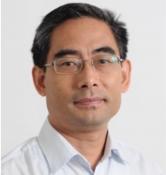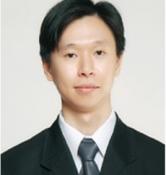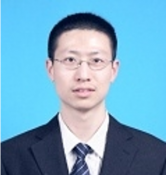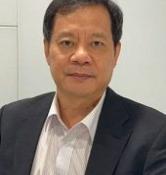Biography
- BSc (1st Class Honors), Chemical Engineering; 1979; University of Singapore
- M.S.E., Chemical Engineering; 1980; University of Michigan at Ann Arbor
- Ph.D, Chemical Engineering; 1985; University of Michigan at Ann Arbor
- Professor, Chemical & Biomolecular Engineering, NUS
- Senior Principal Fellow, Energy Studies Institute (ESI)
- Co-director, Singapore Energy Center (SgEC)
Research Interest and Capabilities
-
Lithium-sulfur batteries
-
Rechargeable aqueous metal-air batteries
-
Energy storage dual-band smart windows
-
Electro-membrane processes
Biography
- Jia Junbo received his B.Eng. degree in 1988, the M. Eng. degree in 1996, both from electrical engineering in Southwest Jiaotong University, China, and Ph.D. degree in 2011 from Nanyang Technological University, Singapore.
- Jia Junbo is a senior scientist in Clean Energy Research Centre, Temasek Polytechnic.
Research Interest and Capabilities
- Advanced battery management system
- Energy management for underwater devices, forklift, and electric vehicles
- Energy storage system
- Micro-grid
Biography
- Education: Doctor of Philosophy (Physics) 2008, National University of Singapore
- Scientist III, Institute of Chemical and Engineering Sciences (ICES
Research Interest and Capabilities
- Heterogeneous acid & base catalysts for green chemistry
- Electro-catalysts based on carbon materials
- Fuel cell catalysts, and batteries materials
- Density functional theory (DFT) studies of catalytic systems
Biography
- Scientist, A*star, I2R, Machine Intellection, 2021-
- MIT, S.M. and Ph.D. in Mechanical Engineering and Computation, 2020
- Tsinghua University, B.Eng. in Energy and Power Engineering, B.Sc. in Pure and Applied Mathematics, 2012
Research Interest and Capabilities
- Hybrid physical and data-driven modelling and state estimation for lithium-ion batteries.
- Physical modelling of electro-synthesis facilitated by optimal experimental design.
- Bayesian data assimilation and model selection for high-dimensional nonlinear dynamical systems with adaptive sampling.
- Computational fluid dynamics.
Zhaolin Liu is a Principal Scientist at the Institute of Materials Research and Engineering (IMRE), A*STAR. He has over 30 years of experience in the research of battery materials and relative electrochemical devices. His current research focus includes battery materials and devices, electrocatalysis for fuel cell and metal–air batteries, and nanostructured materials for energy technologies. In 2021, he was recognised as a Web of Science Highly Cited Researcher.
Research Interest and Capabilities
- Li-ion batteries and relative materials
Synthesis of novel cathode materials (high nickel NMC and NCA, LMFP, 5V materials etc) and anode materials (Si/C, Si/graphite, Sn/C, SnOx/C, Fe2O3/C, LTO etc); Electrolytes additive; Battery design and performance optimization and prototype pouch cell assembly; Study conductive carbon materials (carbon black, CNT and graphite) application in the cathode. Coin cell and prototype pouch cell can be fabricated and their electrochemical performances can be evaluated.
- Batteries and supercapacitors and relative materials
Work on other types batteries, such as nickel metal hydride, lead acid, lithium primary batteries, alkaline battery, as well as supercapacitors; Propose a solution for company’s problem statement; Study conductive carbon materials (carbon black, CNT and graphite) application in the electrodes. The electrochemical performances of the cathode and anode can be measured in the Autolab electrochemical system and battery tester.
- Fuel cells and fuel cell catalysts
Synthesis and catalytic activity evaluation of Pt/C, PtRu/C, PtSn/C, PtSn/CNT and PtRu/CNT etc for PEMFC and DMFC; Studies and evaluate on the PEMFC and DMFC electrodes; PEMFC and DMFC design and prototype fabrication. The electrodes and membrane can be fabricated and their performances can be evaluated in the home-made prototype cell.
- Electrochemistry
Design and study novel electrochemical devices for water splitting to generate hydrogen and CO2 reduction; Mechanism understanding of electrochemical devices and reactors.






